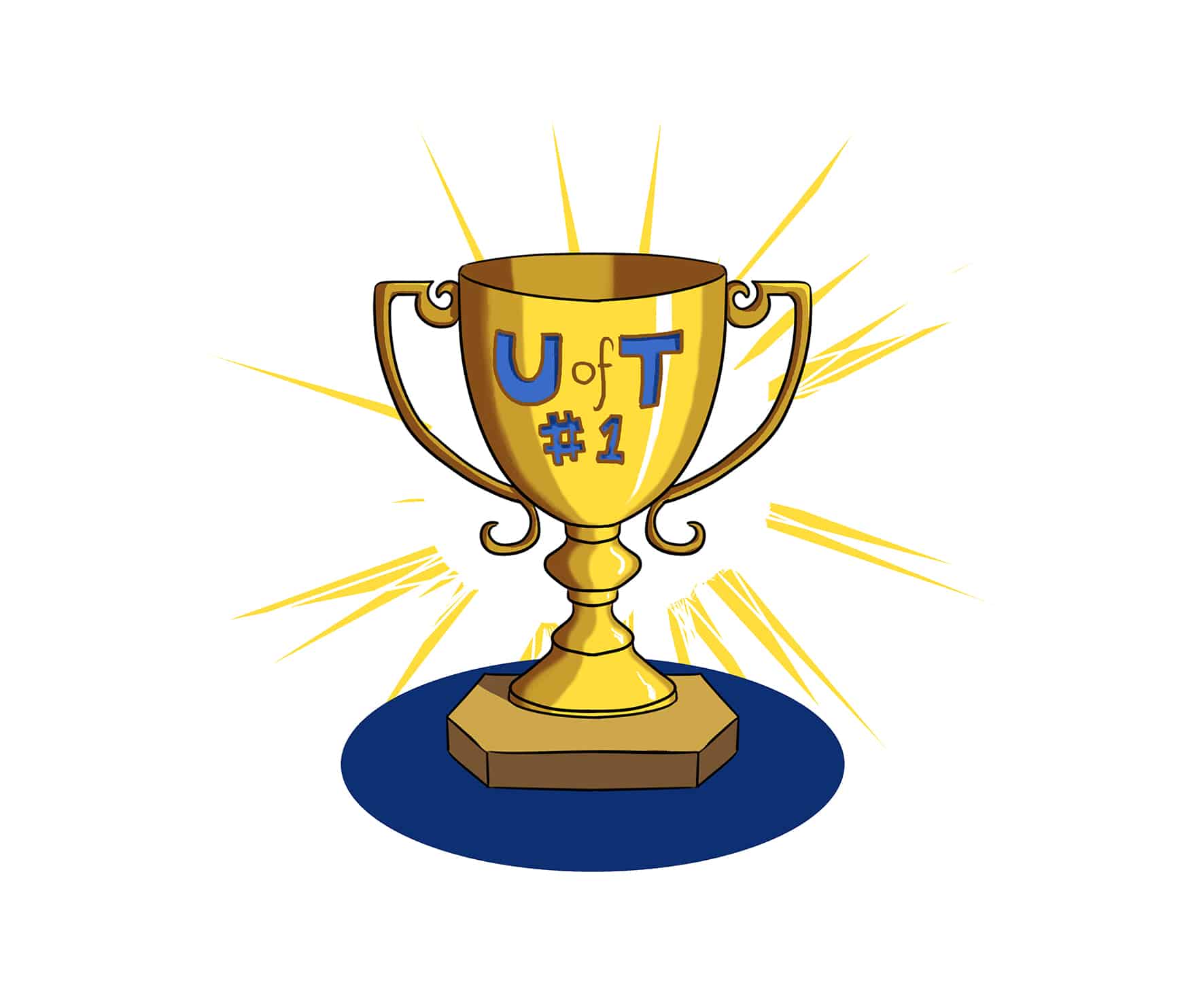As we are so often reminded, the University of Toronto constantly makes headlines for topping university ranking charts. We asked our writers to weigh in on the reasons for the university’s rumoured excellence.
Extracurriculars
One of U of T’s biggest strengths is the breadth and depth of the extracurriculars that it offers. With over 1,000 clubs and student organizations, there most certainly is something for everyone here, regardless of what you are looking for.
The university’s robust history means that many student organizations carry their own legacies, and students who join these groups have the opportunity to feel like they are positively contributing to something bigger than them, by adding their own markers to the campus timeline.
U of T’s three campuses collectively boast the largest student enrolment of any university in the country, including a large body of international students. The diversity of the student body means that there are opportunities for all types of hobbies, talents, and interests from around the world and that it is easy for students to find organizations tailored to their needs.
With that said, new clubs are still popping up at U of T: the Ismaili Student Association, the MusicBox Children’s Charity, and the U of T Model Parliament Simulation are just a few of the clubs that have started up this academic year.
Jane Wu is a second-year student at University College studying Ethics, Society, and Law and Peace, Conflict, and Justice Studies.
Services
U of T offers a number of services and facilities for students that contribute to improving the student quality of life and experience on campus. Not only is there a wide variety of services offered given the university’s size, but as per the U of T student services website, they are constantly being monitored by specialists within each field, speaking to their quality.
Some services in particular should be noted for their excellence. The Sexual & Gender Diversity Office, for instance, has been one of the most successful offices of its kind across Canada. In addition to providing students with services such as Gender Talk and LGBTQ film series, their Positive Space campaign has been fruitful in raising awareness about issues affecting the LGBTQ community. The office has also promoted the Washroom Inclusivity Project, sponsoring a safer and more respectful environment for the campus community.
Furthermore, the Career Centre is managed by experienced advisors who engage students in career planning and help them explore their options for the future. This helps to motivate students and alleviate their anxieties in stressful situations.
Finally, beyond serving as a resource for international students, the Centre for International Experience offers the International Mentorship Program, the Intercultural Learning Program, a wide variety of summer and exchange opportunities, and the Global Ambassador Program.
Ioanna Karcas is a first-year student at Woodsworth College studying History.
Research
U of T consistently makes top grades on university rankings for its research excellence.
The university is particularly renowned for its scientific research. Vivek Goel, U of T Vice-President of Research and Innovation, has stated that the university’s “work supports, fosters and promotes the research and innovation culture and activities of our faculty and students across our three campuses, along with our partner hospitals, funding sponsors, and partners in the public and private sector.”
The impact of U of T’s reasearch within Canada’s largest city is truly impressive, as Toronto has one of the largest biomedical research hubs in North America. In 2015, U of T acquired four floors in the MaRs Building, which — in addition to facilitating close connections with some of Canada’s top researchers and innovators — cemented U of T into Toronto’s scientific community.
With a range of research assistant jobs as well as course offerings dedicated to self-led inquiry, students also have the opportunity to take research into their own hands and contribute directly to the maintenance of the university’s intellectual community.
Nicolle Iovanov is a third-year student at Woodsworth College studying Political Science and History.
Course offerings
U of T offers a wide and diverse range of programs and courses at all three of its campuses, with approximately 700 programs offered at U of T in total. While comparable programs can be found at other Canadian institutions, many others are unique to the university’s faculties and college system. Although U of T is internationally renowned for being one of the leading universities for research — particularly in the life sciences — arts and humanities programs at U of T also ranked fifteenth in Times Higher Education World University rankings for 2016–2017.
All seven colleges affiliated with U of T are known for offering specialized programs that carry positive reputations. Some of these programs are unavailable elsewhere because of their exclusive curricula, including Writing and Rhetoric at Innis College and Renaissance Studies, Material Culture, and Semiotics and Communication Theory at Victoria College.
This is not to mention that the university’s academic calendar is revised every year to update existing course options and include new arrivals. The 2016–2017 academic year marked the launch of U of T’s new Ethiopian Studies program by the Department of Near and Middle Eastern Studies, as well as a new Master of Social Work program called Indigenous Trauma and Resiliency. What we can garner from this is that U of T is constantly expanding, revising, and offering progressive programs and courses to respond to the educational interests of its student body.
Carol Eugene Park is a third-year student at Victoria College studying English and Renaissance Studies.


